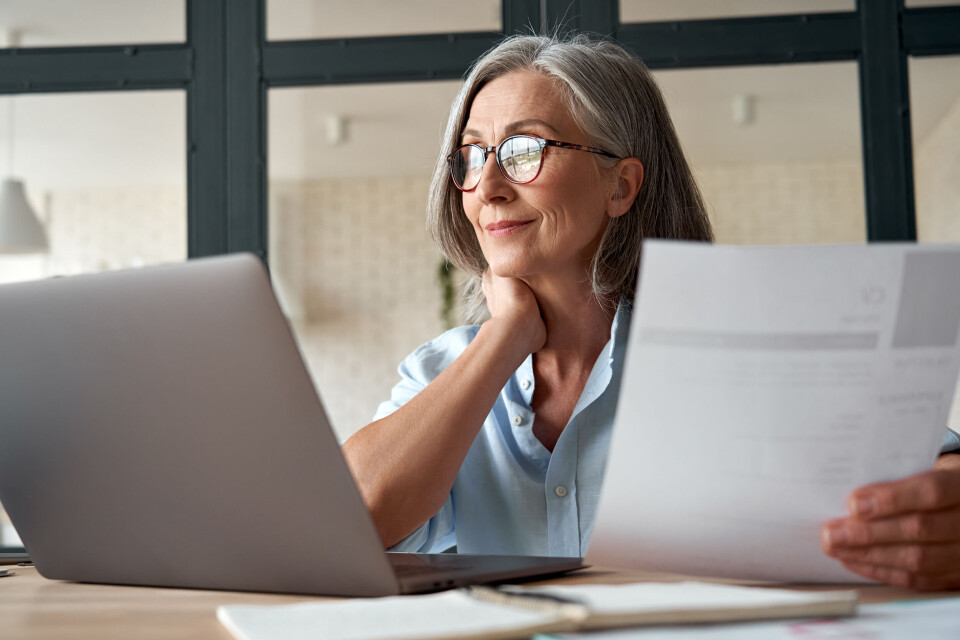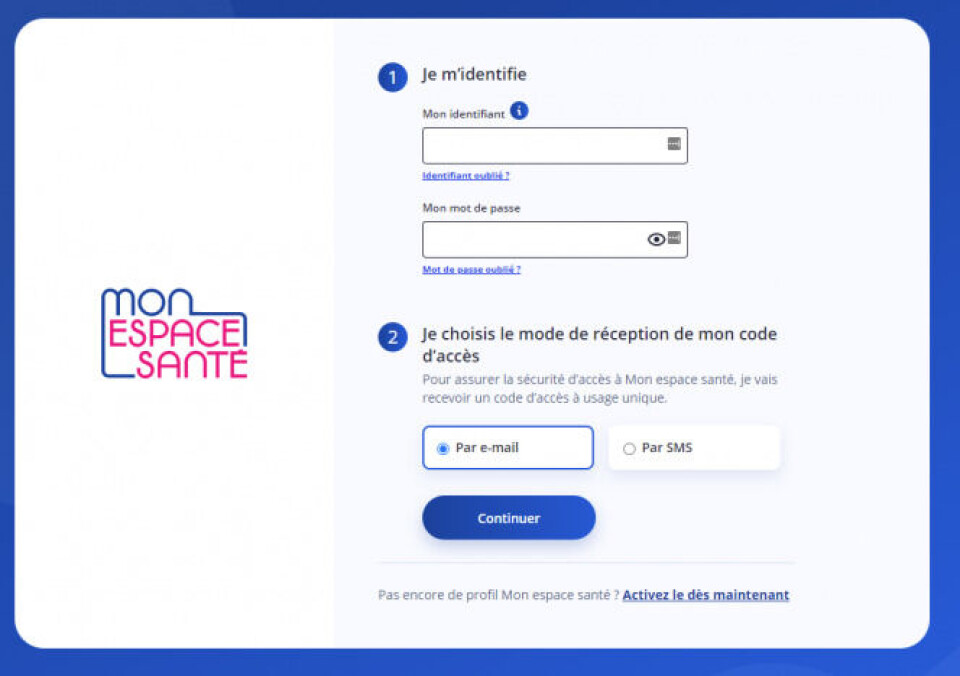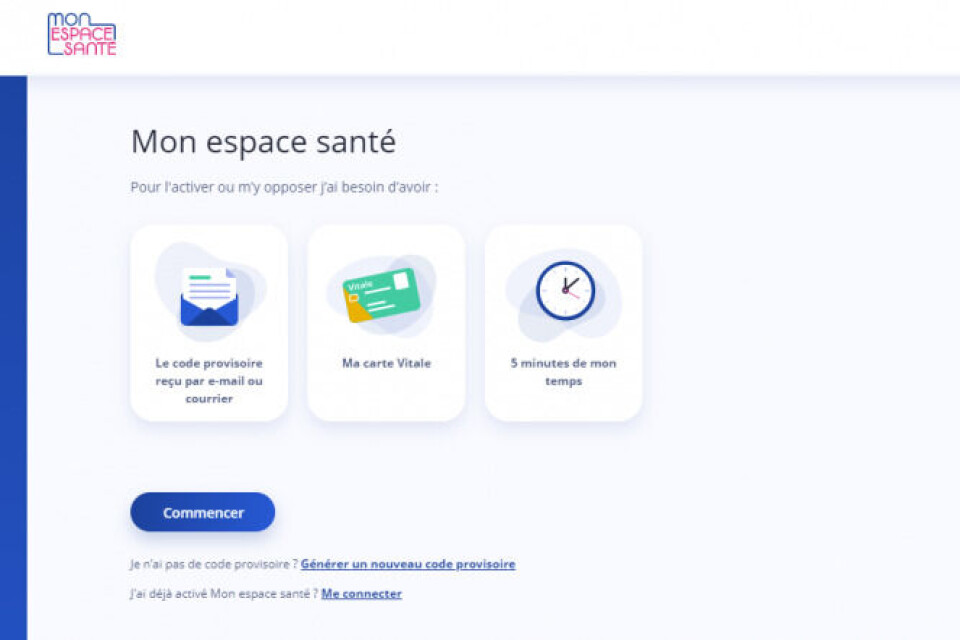-
Many parcel collection points in France are overwhelmed as Christmas approaches
Heavy customer traffic leaves some struggling to cope
-
Warnings issued over connecting to public WiFi networks in France
Lack of encryption and risk of connecting to ‘fake networks’ leave users at risk of hacking attempts
-
Provence’s santon makers seek geographical protection for historic craft
The small, hand-painted clay figurines are at the heart of traditional French Christmas nativity scenes
New online health space: What it changes for residents in France
As the new Mon espace santé website begins its official rollout today, we answer key questions on how you login to your space, and who else will have access

As France officially launches a new online health space where you can see your medical history, including prescriptions, X-rays, and other documents, we answer key questions on how it will work for residents.
The new Mon espace santé (My health space) is hosted on an independent platform, separate from the Assurance maladie website, Ameli.fr.
It was successfully tested in three departments (Haute-Garonne, Loire-Atlantique, and Somme) at the end of 2021, and officially launches today (February 3).
It is hoped the new platform will encourage better dialogue between patients and the doctors treating them.
Previously, health documents would have been kept by the patient and then brought by them to appointments, or stored on the (optional) Dossier Médical Partagé (DMP) digitised medical file in France, which is now being phased out.
Read more: New digital space rolled out in France to better manage health data
Talking about the initiative last year, Health Minister Olivier Véran said: “It will take time for everyone to get used to it and learn how to use it, but it will be a small, very positive revolution in healthcare.”
We explore the basics of how the new space will work.

What information is stored in the space?
People who had a DMP (around 10 million people in mid-2021) will find the same content in their space as in the DMP.
Those who did not have a DMP will not see much in their space at first; only their vaccination history and reimbursement history.
Eventually, however, documents will start to appear. These will include prescriptions, payments, reimbursements, test results, and X-rays.
You will also be able to add and check on your known allergies, conditions, or illnesses; any current treatment plans; any time spent in hospital; family history; and any ‘last wishes’ in the event of your death.

How do I log in?
Letters or emails asking people to activate their profile started being sent out in January, and the roll-out will continue until March 28.
L’Assurance Maladie is set to send more than a million activation codes per day by email or post. Once you have your code, you can register your account online at the website MonEspaceSante.fr. You will need your carte Vitale.
People who do not have access to the internet can get help at a local “guichet de proximité France services” (local counter), or at the caisse primaires d’assurance maladie.
A team of 4,000 mediators is currently being trained in Mon espace santé, so they can offer assistance.
Who has access?
Only the individual themselves, plus professional healthcare staff such as doctors. Your insurers and employers do not have access.
Healthcare staff must use a personalised magnetic card to access the system and details of someone else, and must also have written or oral authorisation from the patient. After that, any healthcare staff member on the team that is taking care of you will have access.
If the patient cannot consent due to being unconscious or not of right mind, medical professionals will be able to access their space, except if the patient has previously denied consent to this in the Accès en cas d’urgence (Access in case of emergency) section.
You can also enable or disable access to documents individually, by clicking on ‘edit a document (modifier un document)’ and then selecting the level of confidentiality you need.
How will unauthorised access be checked and stopped?
Individuals can check who has accessed their space by looking at the activity history. The name of the professional, the time of connection, and the document seen are listed.
When a health professional connects for the very first time to a person’s space, the individual will receive an alert by e-mail. The individual can then choose to block access to documents, as explained above.
Medical information must legally be encrypted, and organised so that it cannot be downloaded in one go, and this will be the case on the new system.
French companies Wordline and Atos will host the data. The Assurance Maladie has said that the servers will be monitored by its IT security experts, who will be alerted in the event of suspicious behaviour.
Anyone who accesses someone’s health space without being a health professional, or for non-medical reasons, will be liable to criminal sanctions.
Can I opt out?
Yes, from today, and up to six weeks after receiving your message about your new account, you can opt out of using the service.
To do this, you must log on to Monespacesante.fr or call 34 22 (free service + call charge).
Even if you accept the creation of your space, you can delete it any time by logging on to the site. The information will then become inaccessible but will be kept for ten years, unless you tick the box requesting its permanent deletion.
In this case, all data will be permanently deleted from the site. Of course, this will make it more difficult for doctors to care for you in the event of a health condition or emergency.
‘A good tool’
Dr Stéphane Foulon, a GP in Amiens (Somme) who has used the system, told France Bleu that it is “a very good tool”.
He explained: “Imagine you’re on holiday on the other side of France and you have a car accident. Instead of just being an unknown person who goes to hospital, or is picked up by the ambulance, your health history will be available.
“Or imagine that you are moving house, and you are going to see a new doctor. Even if they are on the other side of the country, they will have access to your shared medical file immediately. They will know who you are, your history.
“This is important.”
Related articles
France plans to put more admin online but is it positive step for all?
Digital carte Vitale: Where, how and when is this used in France?
Top-ups, eye tests, online: Eight healthcare changes in France in 2022
























